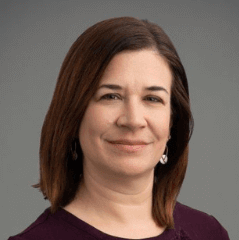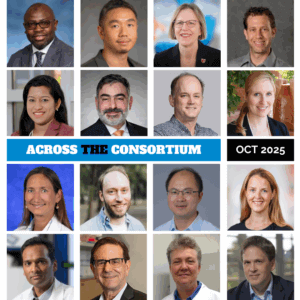December 2025
A Big Ten Cancer Research Consortium clinical trial, BTCRC-BRE15-024, titled “A phase I/II, single arm, nonrandomized study of ribociclib, a CDK 4/6 inhibitor, in combination with bicalutamide, an androgen receptor inhibitor, in advanced AR-positive triple-negative breast cancer,” (SABCS Poster # PS5-02-26) will be presented by Julia Knight-Shefner, MD, of the University of Wisconsin Carbone Cancer Center, as a poster at the 2025 San Antonio Breast Cancer Symposium. Read More





















Subscribe to the Big Ten CRC Newsletter X
X Facebook
Facebook YouTube
YouTube